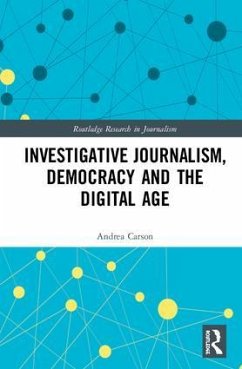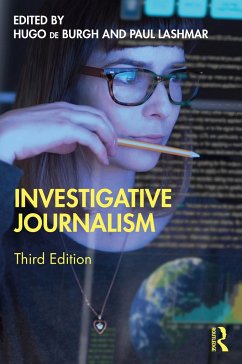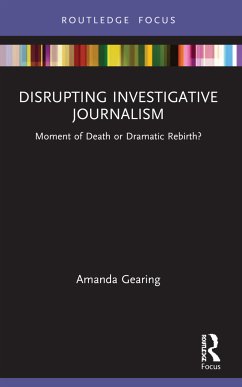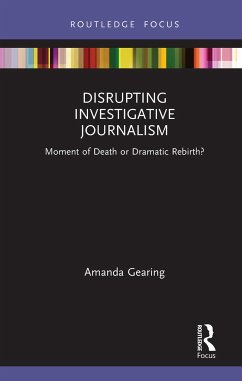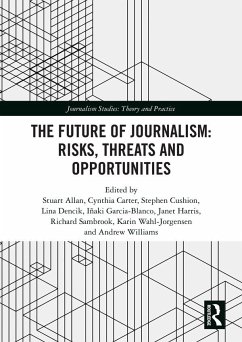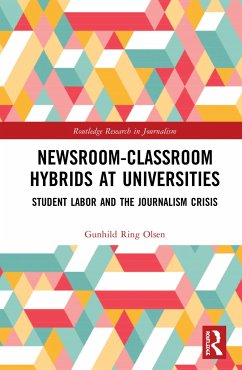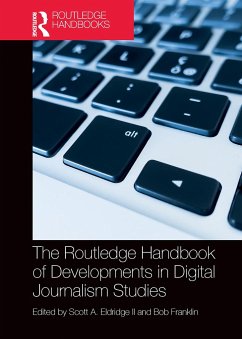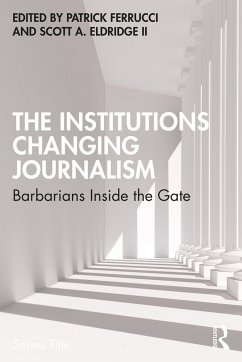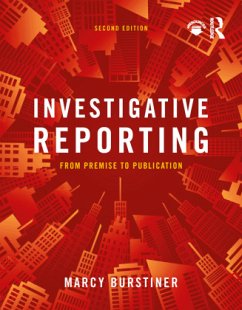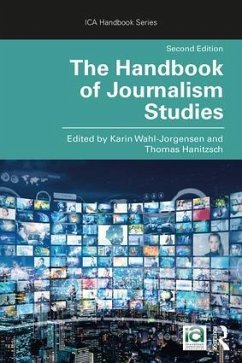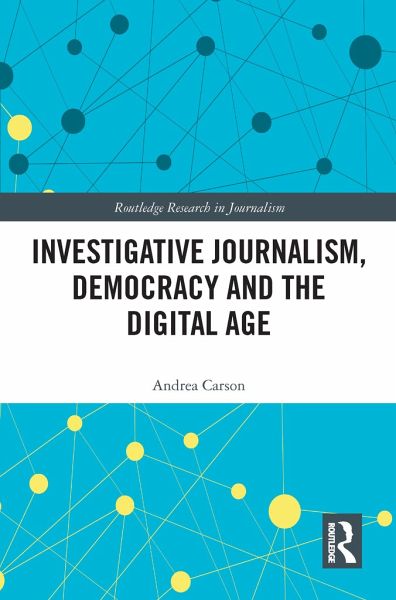
Investigative Journalism, Democracy and the Digital Age
Versandkostenfrei!
Versandfertig in 6-10 Tagen
45,99 €
inkl. MwSt.

PAYBACK Punkte
23 °P sammeln!
Theoretically grounded and using quantitative data spanning more than 50 years together with qualitative research, this book examines investigative journalism's role in liberal democracies in the past and in the digital age. In its ideal form, investigative reporting provides a check on power in society and therefore can strengthen democratic accountability. The capacity is important to address now because the political and economic environment for journalism has changed substantially in recent decades. In particular, the commercialization of the Internet has disrupted the business model of tr...
Theoretically grounded and using quantitative data spanning more than 50 years together with qualitative research, this book examines investigative journalism's role in liberal democracies in the past and in the digital age. In its ideal form, investigative reporting provides a check on power in society and therefore can strengthen democratic accountability. The capacity is important to address now because the political and economic environment for journalism has changed substantially in recent decades. In particular, the commercialization of the Internet has disrupted the business model of traditional media outlets and the ways news content is gathered and disseminated. Despite these disruptions, this book's central aim is to demonstrate using empirical research that investigative journalism is not in fact in decline in developed economies, as is often feared.





